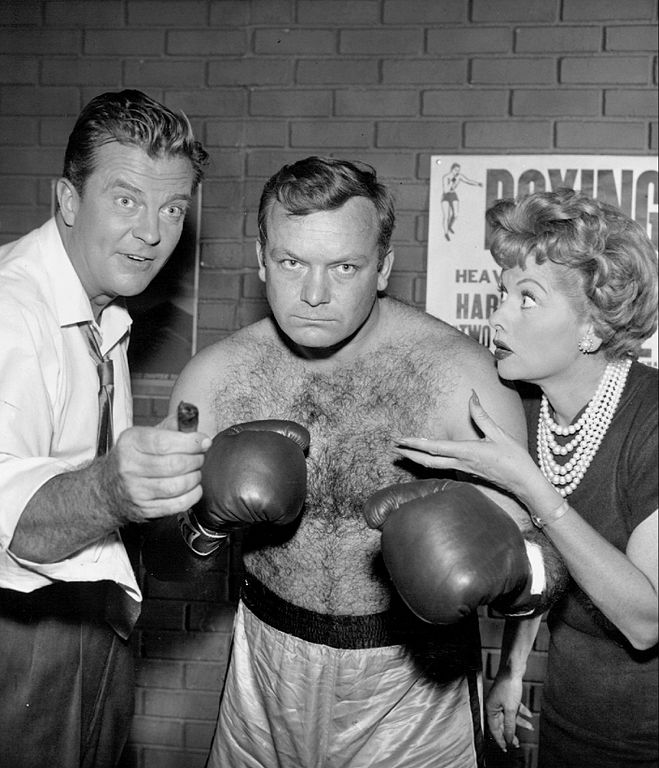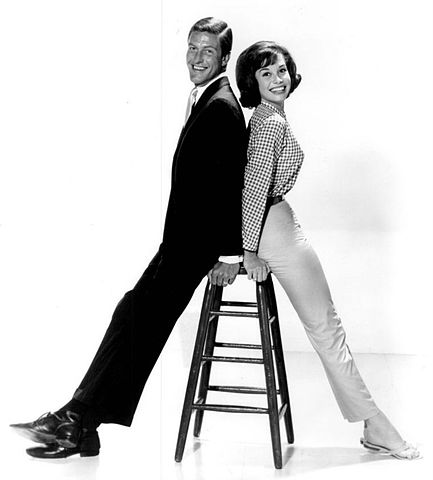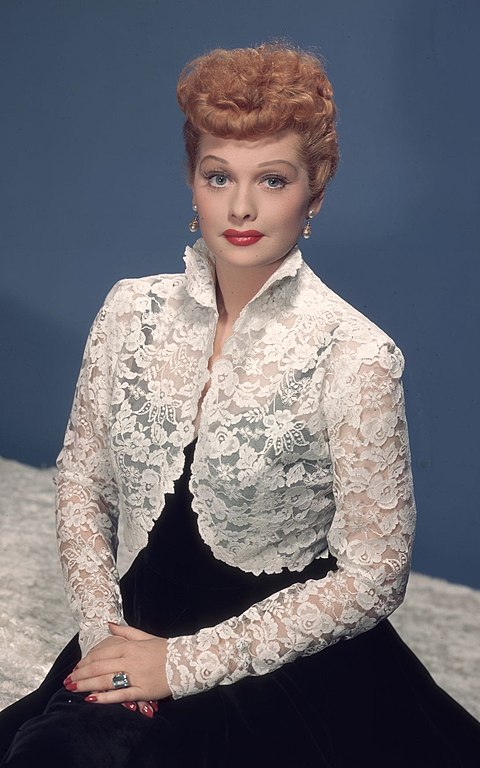Lucille Ball and Desi Arnaz, through their company Desilu Productions, didn’t just entertain millions; they revolutionized television. They produced some of the most influential TV shows from the 1950s and 60s, leaving an enduring legacy that shaped the future of the medium. Their most iconic creation, “I Love Lucy,” set groundbreaking standards for sitcoms and is still celebrated today.
Beyond “I Love Lucy,” Desilu Productions was responsible for a slew of other television classics, including “The Untouchables,” “Mannix,” and “Mission: Impossible.” These shows not only captivated audiences but also introduced innovative storytelling techniques and production methods. Their pioneering work laid the foundation for genres and styles that continue to thrive in modern TV.
Desilu’s impact was far-reaching, evident in the diverse genres they explored. The company brought adventure with “Whirlybirds,” intrigue with “The Untouchables,” and the final frontier with “Star Trek.” Each show they produced reflected their commitment to quality and creativity, proving that television could be both engaging and transformative.
Formation and Pioneering Legacy
Desilu Productions, founded by Lucille Ball and Desi Arnaz, revolutionized television production through innovative techniques and groundbreaking programming. This section explores the origins and the significant advancements Desilu Productions brought to the TV industry.
Origin of Desilu
Desi Arnaz and Lucille Ball founded Desilu Productions in 1950. The couple, who met at RKO Pictures, established their studio in Hollywood. Initially, Desilu was created to produce their sitcom, I Love Lucy. The show premiered in 1951 and quickly became a huge success, setting the foundation for a flourishing production company.
Desilu grew rapidly by acquiring RKO Pictures’ facilities, enhancing its ability to produce more shows. This strategic move positioned Desilu as a significant player in TV production in Los Angeles. The company’s focus on quality and innovative storytelling solidified its reputation in the industry.
Innovations in Television Production
Desilu Productions introduced several groundbreaking techniques in television. One of their most notable innovations was the use of a multiple-camera setup for filming I Love Lucy. This method used three 35mm film cameras simultaneously, allowing for different angles and smoother editing, enhancing the viewer’s experience.
They also pioneered the concept of syndication, allowing TV shows to be broadcasted again after their initial air date. This was particularly beneficial for I Love Lucy, which became one of the most syndicated shows in history. Desilu’s efforts in this area set new standards for how TV shows were produced and distributed, influencing many future productions.
Seminal Shows and Creations
Desilu Productions, founded by Lucille Ball and Desi Arnaz, introduced some of the most influential TV shows in history. These series not only became cultural touchstones but also broke new ground in their respective genres.
The Cultural Phenomenon of ‘I Love Lucy’
“I Love Lucy,” starring Lucille Ball and Desi Arnaz, premiered on CBS in 1951. The show became an instant hit due to its innovative blend of comedy and heartfelt moments. The series centered around the misadventures of Lucy and Ricky Ricardo, a married couple who frequently found themselves in humorous situations.
The introduction of a three-camera setup and live audience shooting also set new standards for television production. “I Love Lucy” became the first TV series to be filmed in front of a live audience, which added to its energetic and authentic feel. The show’s impact extends beyond its original run, remaining popular in syndication and influencing countless sitcoms.
‘Star Trek’ and Sci-Fi Groundbreaking

“Star Trek” premiered on NBC in 1966 and was produced by Desilu Studios. Created by Gene Roddenberry, the series explored space travel through the futuristic adventures of the Starship Enterprise. It broke new ground in science fiction storytelling with its imaginative plots and emphasis on exploring social issues.
“Star Trek’s” diverse cast and optimistic vision of the future set it apart from other shows at the time. Despite a short initial run, the show’s popularity soared in syndication, leading to multiple spin-offs, movies, and a dedicated fan base. It remains one of the most influential science fiction series ever created.
‘Mission: Impossible’ and the Spy Genre

“Mission: Impossible” debuted on CBS in 1966, also produced by Desilu Productions. The series featured the covert missions of the Impossible Missions Force (IMF), led by characters like Jim Phelps. Known for its complex plots, clever gadgets, and intense action, the show quickly became a staple of the spy genre.
The iconic theme music and self-destructing mission briefings became hallmarks of the series. “Mission: Impossible” not only captivated audiences during its original airing but also inspired a successful movie franchise that continues to thrive, proving its lasting impact on both television and film.
Other Influential Series

Desilu Productions was behind several other influential television series. “Desilu Playhouse,” an anthology series, gave viewers a variety of stories and showcased the studio’s versatility.
“The Untouchables,” a crime drama, captivated audiences with its gritty depiction of Prohibition-era law enforcement. “My Favorite Husband,” starring Lucille Ball, laid the groundwork for her later success with “I Love Lucy.”
“Whirlybirds,” a drama/adventure series, showcased the excitement of helicopter rescues and missions, adding to Desilu’s diverse portfolio. Each of these series contributed to Desilu’s legacy of innovation and entertainment.
Technological and Industry Contributions
Lucille Ball’s Desilu Productions played a pivotal role in advancing television technology and reshaping the TV industry. Key innovations included the development of the multi-camera setup and a significant influence on syndication and re-runs.
Developing the Multi-Camera Setup
Desilu Productions, particularly through the groundbreaking show I Love Lucy, innovated the use of the multi-camera setup for sitcoms. This technique, developed with the help of cinematographer Karl Freund, employed three cameras to simultaneously capture various angles.
This method allowed for more dynamic and efficient filming sessions, as it reduced the need for retakes. It also enabled the presence of a live studio audience, enhancing the comedic timing and energy of the performances. The multi-camera setup became the industry standard for sitcoms and continues to influence TV production today.
The Role of Desilu in Syndication and Re-runs
Desilu not only transformed production techniques but also paved the way for the syndication and re-run business model. By retaining the rights to I Love Lucy, they were able to resell the series to other networks after its original run. This practice not only extended the show’s lifespan but also created a valuable library of content.
Syndication allowed I Love Lucy to be broadcast repeatedly, reaching new audiences and generating ongoing revenue. Desilu’s strategy demonstrated the long-term financial potential of TV shows, leading other studios to adopt similar practices. This shift had a lasting impact on television economics and content availability.
Impact on Pop Culture and Society
Desilu Productions brought groundbreaking changes to TV, shifting cultural norms and reshaping modern television. Key shows tackled serious themes while still providing entertainment, forever changing how stories were told on screen.
Breaking Societal Norms
Desilu’s production, I Love Lucy, was revolutionary in several aspects. One of the most notable was its portrayal of pregnancy. When Lucille Ball’s real-life pregnancy was written into the show, it was the first time a pregnant woman was depicted on American television. This broke significant societal norms and opened doors for more realistic storytelling.
The show also boldly cast Desi Arnaz, a Hispanic actor, as Lucy’s husband, Ricky Ricardo. This was a daring choice in a time when interracial marriages were still taboo. It challenged Hollywood’s status quo and paved the way for more diverse casting. Through the antics of Lucy and Ricky Ricardo, audiences saw a loving, albeit comedic, partnership that defied the racial prejudices of the era.
Influence on Modern Television Content

Desilu’s influence extended far beyond the 1950s. The situation comedy (sitcom) format popularized by I Love Lucy has endured as a staple of television content. Shows like The Dick Van Dyke Show and Mannix, both produced by Desilu, introduced elements still prevalent in today’s TV series. These shows used multi-camera setups and live studio audiences, techniques that became standard in sitcoms.
Furthermore, the success of Desilu’s productions demonstrated the viability of physical comedy in a family setting. Lucille Ball’s mastery of slapstick and situational comedy set the blueprint for generations of TV heroines. Modern sitcoms continue to draw inspiration from the foundations laid by Desilu, ensuring its legacy lives on in every laugh track and comedic mishap.
Desilu’s contributions to television transformed cultural perceptions and narrative possibilities, making lasting impacts on both society and the medium itself.
Key Figures and Creative Forces

Lucille Ball and Desi Arnaz were the driving forces behind Desilu Productions, which produced some of the most influential TV shows in history. Their unique blend of talents and leadership shaped American television.
Lucille Ball’s Leadership in the Industry
Lucille Ball was not just a talented actress; she was also a savvy businesswoman. Ball’s decisions at Desilu Productions changed the landscape of television. Her vision brought innovative ideas to TV, making it a dominant medium in American culture.
Ball’s influence extended beyond acting. She took on roles as an executive, producing shows that became cultural landmarks. Her work on “I Love Lucy” set new standards for sitcoms, generating massive viewership and lasting influence.
Even more, Ball’s leadership at Desilu opened doors for many in the industry, including women. She demonstrated that women could lead and succeed in Hollywood. Under her guidance, Desilu produced groundbreaking series like “Star Trek” and “Mission: Impossible.”
Desi Arnaz as Co-Founder and Innovator
Desi Arnaz co-founded Desilu Productions with Lucille Ball and was a key innovator in television production. Arnaz’s background in music and entertainment brought fresh ideas to the company. He managed production logistics and business strategies, ensuring smooth operations.
Arnaz was instrumental in pioneering the three-camera technique for “I Love Lucy.” This approach allowed for efficient filming in front of a live audience, which became a standard in the industry. His contributions also included organizing the first syndication model, setting up long-term revenue opportunities for TV shows.
Beyond production, Arnaz’s influence extended to on-screen diversity. His Cuban heritage and bilingual ability broke new ground on American TV. His work built a legacy, showing that creative ingenuity and strong business acumen could lead to lasting success in Hollywood.
Industry Dynamics and Business Strategies
Desilu Productions used smart expansion and innovative business strategies to cement its place in the TV industry. Focusing on acquiring valuable assets and adopting new production techniques, Lucille Ball led the company to success.
Desilu’s Expansion and Studio Acquisitions
Desilu Productions, co-founded by Lucille Ball and Desi Arnaz, grew significantly through strategic studio acquisitions. One key move was purchasing RKO Studios, which became the Desilu Studios. This acquisition provided Desilu with vast resources and production spaces, allowing them to produce more shows concurrently.
They also acquired the Motion Picture Center, further expanding their capabilities. These acquisitions positioned Desilu as a major player in Hollywood, enabling them to produce influential television shows like Star Trek and The Untouchables. The expanded facilities allowed for more ambitious projects, which drew in high-profile collaborations with CBS and other networks.
The Business Approach to Television
Lucille Ball’s business strategies were groundbreaking in the television industry. Desilu pioneered the use of 35mm film for TV production, ensuring higher quality visuals. This decision attracted top talents and high-budget projects, enhancing the studio’s reputation.
Desilu also implemented the multi-camera production technique, an approach that became an industry standard. This innovation allowed for efficient shooting schedules and consistent quality. Their approach to producing and owning content gave them leverage in negotiations, leading to profitable syndication deals. Lucille Ball’s role as a studio head, a rarity for women at the time, showcased effective leadership and strategic vision that left a lasting impact on the television industry.
Desilu’s Evolution and Legacy
Desilu Productions, co-founded by Lucille Ball and Desi Arnaz, transformed television with their innovative shows and production techniques. Their legacy includes a significant influence on the industry and a pivotal sale that reshaped the studio.
Transition and Sale of the Studio
In 1967, Desilu Productions was sold to Paramount Pictures. This sale marked a major transition for the studio and the television industry. Under Lucille Ball’s leadership, Desilu had become a powerhouse, producing iconic shows like I Love Lucy and Star Trek.
Despite Ball’s success in managing the studio, financial pressures and the challenges of running a growing business led to the decision to sell. At the time of the sale, Desilu Productions was the second-largest independent television production company in the United States. Paramount Pictures took over and integrated Desilu’s operations into their own television division, significantly expanding their influence.
Enduring Influence on Entertainment
Desilu’s innovations in production techniques and business practices left a lasting impact on television. Their use of multiple cameras for live audiences and high-quality film stock changed how sitcoms were filmed and set a new industry standard.
Shows like Mission: Impossible and The Untouchables demonstrated Desilu’s ability to produce not just comedy, but also gripping drama and adventure series. TV Guide and the Television Hall of Fame have recognized the studio’s contributions, underscoring its lasting legacy.
Lucille Ball’s role as a pioneering female studio head and Desi Arnaz’s influence on television production shaped the future of television. Desilu’s success and innovations continue to inspire and influence modern television production studios.
